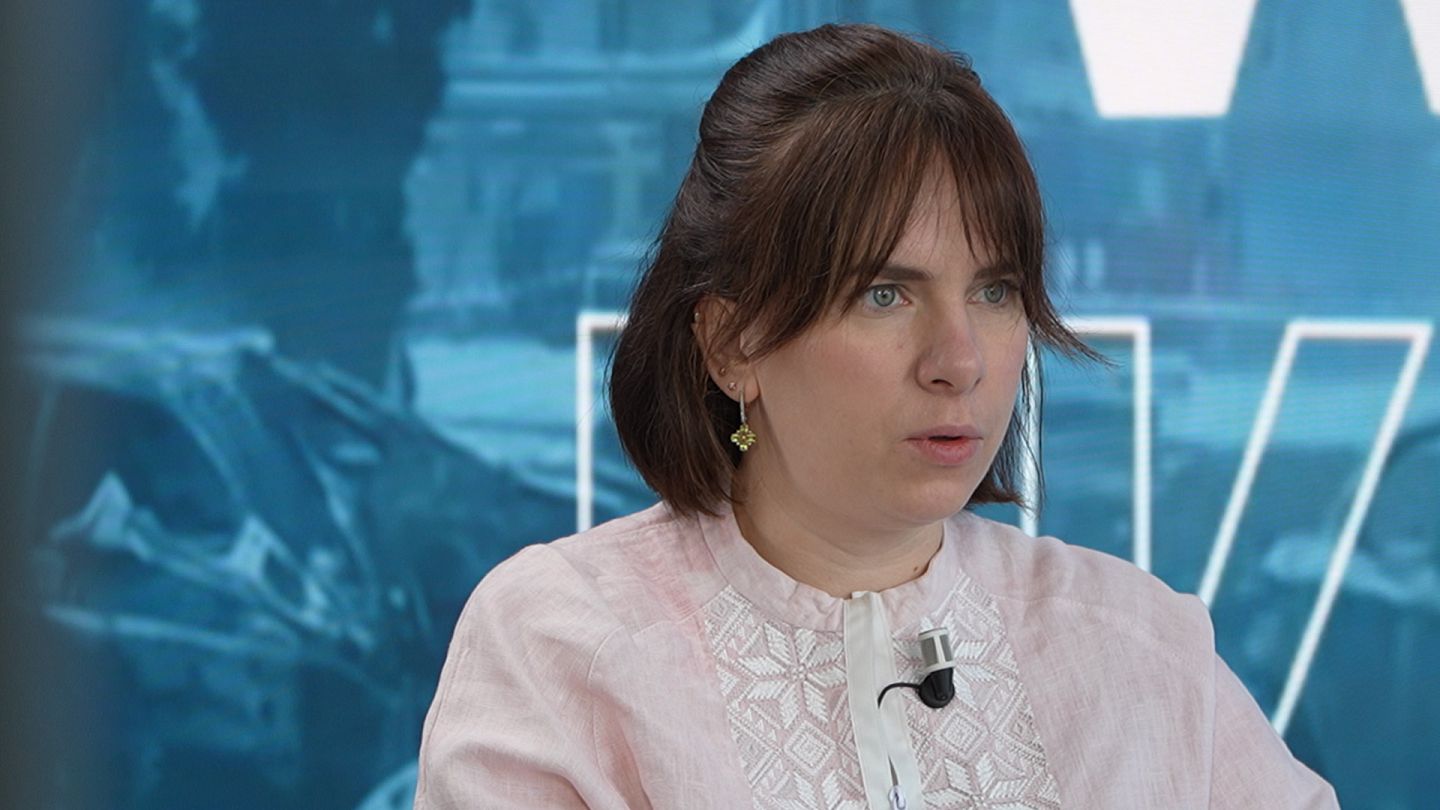Crimea is Russia’s training ground for colonisation, Kyiv envoy says
There is one topic on which Kyiv and Moscow will never agree, and yet, for both sides, this point is of the utmost importance — Crimea. Olha Kuryshko, the Ukrainian president’s permanent representative in Crimea, told Euronews that Russia implemented its 2014 techniques on all occupied territories.
As Ukraine and Russia meet in Istanbul, questions are being asked about whether the talks could bring any progress, let alone a peace deal. While Russia seems to be holding up to its maximalist demands, widely seen as unrealistic not only in Kyiv but also outside of Ukraine, one of Kyiv’s primary goals has been to prove to the US administration that it is the Kremlin and not Kyiv that is the main obstacle to a ceasefire. However, there is one topic on which Kyiv and Moscow will never agree, and yet, for both sides, this point is of the utmost importance — Crimea. Vladimir Putin’s aide, Vladimir Medinsky, who is leading Russia’s delegation, is considered to be one of the key ideologists of Russia’s full-scale invasion and its 2014 annexation of Crimea.Olha Kuryshko, the Ukrainian president’s permanent representative in Crimea, told Euronews that Moscow’s line-up serves as proof of the "continuation of the policy that the Russian Federation has been pursuing all along."“Many politicians who are currently in power in Russia have supported and contributed in every possible way to the temporary occupation of not only Crimea, but also other territories” Kuryshko said in Brussels, where she is participating in the First Crimean Week in the European Parliament, a series of events designed to raise awareness and attention to the annexed peninsula across Europe and the EU institutions. She said it is crucially important that Europe has been reliable and consistent in its support of Ukraine for 11 years now, or ever since Russia annexed Crimea in 2014, and since then, it has been making life for Crimean residents harder and more dangerous.While they often risk their health and even lives in any form of resistance, they need to see that Europe sees and supports their fight. "Resistance is always a two-way communication," she says, explaining that when people in Crimea demonstrate their resistance, they are sending the signals not only to Ukraine, but also to Kyiv’s international partners, that they want to be part of Ukraine.“They show that they are ready to resist, that they do not want this occupation. Even this act of resistance may be a one-way ticket for them”, Kuryshko says, adding that even the smallest sign of disagreement, for example, a "like" or "repos"’ on social media, is severely punished by Russia-installed occupation authorities. And this is why Ukraine needs more support, she says, "when Kyiv was more active against Russia’s military facilities in the occupied Crimea, we saw that resistance was growing, was getting stronger and bigger, because there were expectations of a faster de-occupation of Crimea."“If Ukraine, unfortunately, does not have the capacity to take such active military actions, we should not expect resistance to be at the same level, because they would then be either imprisoned or forced to leave the territory of Crimea,” Kuryshko explained.Russia's 'colonisation' of CrimeaUkrainian President Volodymyr Zelenskyy also appointed his head of the Istanbul talks delegation, and his choice sends a loud and clear signal. Rustem Umerov, Zelenskyy’s defence minister, is of Crimean Tatar origin. He was born in exile in Samarkand in Uzbekistan, after the Soviet authorities uprooted and deported 200,000 Crimean Tatars away from the peninsula. Right after the Soviet authorities conducted a massive campaign to Russify Crimea, trying to change entirely the image and history of the peninsula.Umerov and his family finally returned to Crimea in 1991, after the Soviet Union collapsed.Kuryshko told Euronews that what Russia is doing in Crimea is "colonisation" and this is not the first time. "This is not the first occupation of Crimea and not the first colonisation," Kuryshko says, debunking one of Russia’s biggest disinformation campaigns. Moscow forcefully creates conditions which make it impossible for Ukrainian citizens to live on Ukrainian territory and deliberately brings Russian citizens instead to inhabit the area, she explains, adding that “Russia then turns this all upside down and says that Crimea’s population consists of mainly Russians”, Kuryshko added. Eleven years of occupation is a very long time, she admits. "Imagine an 11-year-old child. This is a grown child with a shaped personality. Imagine this child grew up in Crimea and only knows Crimea as occupied by Russia. Even in mainland Ukraine, there are children who have grown up not knowing Crimea before Russia’s occupation," Kuryshko said.Kuryshko is also certain that Russia will hold on to it until the very end because it "invested a lot in the temporarily occupied territories."She explains that after its first invasion of Ukraine, Russia then implemented and expanded its 2014 techniques much faster on the territories it occupied since the beginning of the full-scale invasion in 2022.“The reform of the education system, Russian textbooks, forced passportisation - all of this has already happened and it happened faster because Russia was prepared, it had practiced and trained on the previously occupied territories,” Kuryshko concluded. Sunday 18 May marks the tragic anniversary of the first echelon of Crimean Tatars forcefully sent to Central Asia from the peninsula. Ukrainian parliament has called on foreign governments and parliaments to recognise the 1944 deportation of the Crimean Tatars by Soviet authorities as an act of genocide.


